The only thing writers do more than write is give advice about writing. Now that I am in a position to consider myself a published author, I thought I should look back at the writing advice I have given, been given, or overheard during the past few years while on the road to "sorta" publishing. Yes, the “sorta” is accurate. Although I am “published,” or will be soon with a small press, I have not yet reached my goal of being in print and in bookstores where anyone I know can walk by, see my name on a book, and say “I think I went to school with that idiot.”
Once everyone knows an idiot has been published, they are more likely to pay attention to the advice said idiot might offer and less likely to call you an idiot - to your face. I don’t like to give advice, partly because I have noticed that advice is more freely given by unpublished writers. That doesn’t make sense to me because I would think they would be published if they really knew what they were talking about. However, to compare it to baseball, there are plenty of coaches giving advice on hitting even though they can’t hit.
With writing, it’s as if once an author is published, they stop giving advice because it might decrease their chances of being published again. Their own club might become less exclusive. Conversely, perhaps the unpublished writers are coughing out advice like phlegm in order to convince others they have actually been or could be published, they just haven’t gotten around to it yet. Maybe if everyone would just shut up, we would have more time to write and get published instead of telling or avoiding telling others how to have your book on the same shelf as an idiot.
Another thing that bothers me about the whole advice thing is when a writer gives a general “blurb” of advice without actually explaining what you’re supposed to do. For example, I recently wrote a post about writers who always remind us to “show, don’t tell” but without actually explaining what that means. Luckily for you, I explained it. You’re welcome. Also luckily for you, I have found other examples of writing advice that were given to me without explanation, but I’ve managed to figure those out too. I’ll follow those with a few of my own pieces of unwanted advice.
For now, let's put aside any confusion about where the apostrophe belongs in “writers’ group.” One would assume it goes after the “s,” but sometimes I see it in front. Let it go and focus on the “group” half of the term. Why should you join a writer’s group? Two reasons. First, to learn if you really write as well as you think you do. Second, to learn that you don’t really need to join a writer’s' group. Let me explain.
The first writers's's group I joined was run by a woman who referred to herself as a published author. Constantly. Not five minutes would go by without her holding up one of her books or incorporating either an anecdote or one of her titles or characters into the conversation. Every time someone asked a question, she would answer by talking about herself without much towards the question posed. She needed someone to remind her that telling us what she did is not the same as telling us what we should or should not do. If I need help picking a good color to paint my bathroom, it doesn’t help to tell me that you painted yours blue, not unless everything about our houses and bathrooms is identical.
She gave us writing assignments, and we shared our work. I have to admit, I was intimidated for a bit. I wasn’t sure how my work would compare to or be received by others. Then I realized it didn’t really matter because, regardless of what you wrote, the only thing anyone else would say was “great job.” It was pretty useless. Nothing was even close to constructive. She gave an assignment that we were supposed to complete, email to her, and wait for feedback. We wrote, we emailed, but we never got the feedback.
The classes were supposed to be once every two weeks. Fortunately, after about three classes I stopped getting emails about the next class. I don’t know if it was intentional or accidental, but I do know that I was not upset about it. I heard something about her taking a trip to the Caribbean, and then I think the group disbanded. Or they're still in the library gathering dust, much like the encyclopedias.
Shortly after that experience, I joined the South Jersey Writers’ Group. This is not a one-woman show. It is organized with officers, subgroups, an annual anthology, and a lot of encouragement from the members. At my first meeting, which was in a Howard Johnson’s banquet room, they went around the room as members announced what they had done since the previous meeting. Members stood and rattled off things such as first drafts completed, recent chapters finished, submissions accepted, and rejection letters received.
The rejection letters was the best thing I had ever heard because, while most people offered condolences, I took it as inspiration. I took it as, “Hey, loser (that being me) at least those people are trying. How hard are you trying?” I wasn’t trying at all. A writers’ group can be a great kick in the ass, and I lucked out.
Finally, the best thing about this writers’ group is that twice a month there are off-shoot meetings at places like a small, neighborhood coffee shop in which nine or ten people bring laptops or notebooks. They sit around a couple of tables, write, and ask questions or offer suggestions to each other. Some just quietly write, some – like me – constantly ask questions such as, “What’s a sports team that everyone hates?” when I need something to include in a story or blog post.
Seems simple enough except – why? I have read this advice many times, but nobody ever included why or exactly what is in the weekly magazine. There are several different components to the magazine, but the most important is a list of coming book releases. It’s broken down by literary fiction, mystery-thriller, science fiction-fantasy, poetry, romance, children’s books, and probably a few others. For each new book it includes the author, publisher, and a blurb about the book. Now, pay attention, because here’s the guts of the advice that nobody ever mentions.
Last year I wrote a thriller that I plan to query soon. How do I know which publishers to send it to? I can look through PW, find which publishers seem to favor thrillers, and pitch it to them. If I’m writing a query letter to agents, I can look through PW to find one or two titles to which I can compare my book. I’ve been told those comparisons are important in queries, but I’ve never been told how to find them. I’m not about to read every book by every idiot on the shelves of Barnes and Noble, but flipping through PW only takes about five minutes a week. By the way, you don't have to be published to call it PW.
That by itself is dangerous because it seems to suggest that if you’re a secretary as well as a writer, write about a secretary. If you love baseball, as a strange number of writers do, write about baseball. I don’t think that’s what the advice is supposed to mean, so I’ll give you my take.
My novel Connecting Flight, to be published by Start Publishing, is set in a small, boring, suburban town. I live in a small, boring, suburban town. To make it easier on myself, I based the geography of the story on my actual street. The houses, the layout, even the characters are all modeled after my actual neighbors.* While other writers might make charts and graphs of houses and colors and streets and people – I’m just writing what I see out the window. Why? Because one of the many vital aspects of writing is consistency. If the bathroom in your main character’s house has green towels in chapter 4 but yellow towels in chapter 6, your readers will know.
When you make everything up from nothing, you have a greater chance of breaking consistency. When you go easy on yourself and “write what you know,” then you won’t have to worry about getting something wrong. However, if your writing features details about the color of towels, then you’re not writing well. I’ll explain that another day.
Also, when I write characters, I imagine the story as a movie. I also imagine the actors I would choose to portray the characters. I choose them based on a particular movie I have seen. As I am writing, I no longer have to worry about remembering how I might have described each character. I only need to remember which actor I had chosen for the role.
* If my neighbors ever happen to read the story and see who dies, who I turned into a serial killer, and how many are assaulted in ways I'd rather not discuss, they'll probably run me out of town on a rail. BTW - that doesn't mean "on a train." It's much more painful. Look it up.
It might seem obvious, but I need to be specific about my reasons. The first has to do with writing styles. I get annoyed by certain writing patterns, especially involving dialogue, such as when someone writes something like this:
“I am mad about something,” he said angrily.
I don’t like writers who constantly follow a line of dialogue with an attribution and an adverb. In the Twilight series, Stephanie Meyer does this so much she must have the pattern inscribed on her laptop screen. Here is a great/bad example of her:
“No,” he said opposingly.
First, I don’t think “opposingly” is a word. Second, I’m pretty sure the “No” was enough to convey the idea that the speaker was in opposition to the other person. The more you read other writers, the more you will pick up on what works or doesn’t work for you. That will help you tune and improve your own writing style. In The Shining by Stephen King, he referred to a metal bar as rattling “vibratorily.” That was not just annoying to read but also ironic considering he is quoted as having said, “The road to hell is paved with adverbs.”
Another reason to read more is because it gets you in the mood for writing, and that is very important. When I read, I am reminded that what I have written might be just as good as what I’m reading. It's just that nobody knows yet. It is very encouraging to believe that even though I’m not nearly as accomplished as that particular author, perhaps at least I can write just as well. I just have to work harder at what to do after having finished revising and editing.
There are other subtle but important things you can learn while reading, such as how to carefully place red herrings and ways to describe someone’s facial features in order to express what they are silently thinking. These things make you want to get back to your computer and return to your current project.
One more –
I have one real goal, which I've already explained - to be traditionally published and available in a real bookstore, either independent or nationally known. In order to achieve that goal, I need to be fully aware of what it takes to get there. That means multiple revisions, searching the right agents, building a solid query, and forging past rejections. It also means baby steps along the way, such as “e-zines,” small presses, anthologies, and possibly self publishing. It also means patience, work, and a willingness to accept negative feedback. It also means sticking with those goals, which I don’t always do.
I love writing film reviews. I love watching movies, but I usually hate reading other people’s reviews because too many reviewers don’t include much about the story. They simply write what they loved and hated or how perfect the casting was, but they don’t describe the story – and the story IS the movie. It takes work to explain enough of a story without explaining too much. My reviews are intricate enough to color in the details and bring you into the beginning of the film. My goal is to get you to a door but leave you outside with enough of an idea to tease you into possibly entering. Then you can decide if you wish to open it or move on to the next door.
Yet as much as I won’t hesitate to spill 1,000 words on a film review, the by-product is that those 1,000 words could have been spent on another chapter in my next novel or short story. Too many writers, definitely including me, get distracted by Facebook, Twitter, and other social media. We need to focus on the primary goal. Maybe later, after goals are reached, we can goof around on Facebook.
I also get distracted from my goals when I write over 2,000 words in a blog post about writing advice, but it's okay. It's my gift to you. This could have been 80% of another chapter in my current work in progress, but I didn’t take my own advice in #5.
That’s because I’m trying to help – like all those other writers who haven’t really accomplished anything yet.

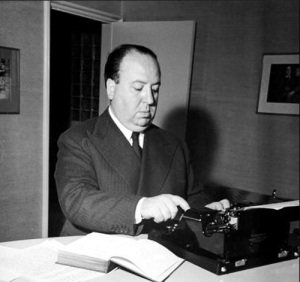
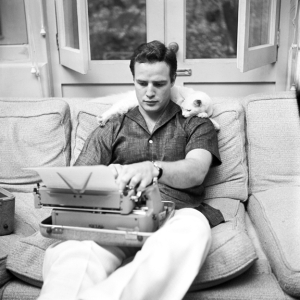
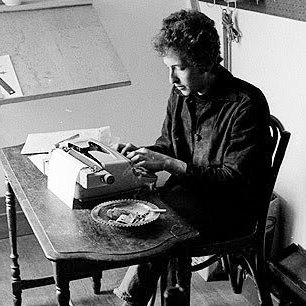
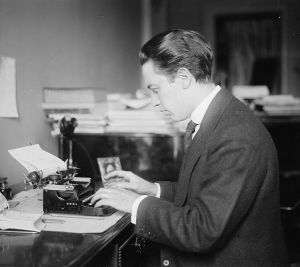
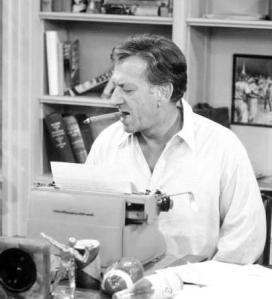
Good stuff. I'm a fan.
ReplyDeletethanks. i'm a fan too!
DeleteGood advice, Rich, and well written as usual.
ReplyDeletejanet
thanks miss. happy new year.
DeleteGood Stuff. Thanks!
ReplyDeletethanks very much for reading and sharing your thoughts.
Delete